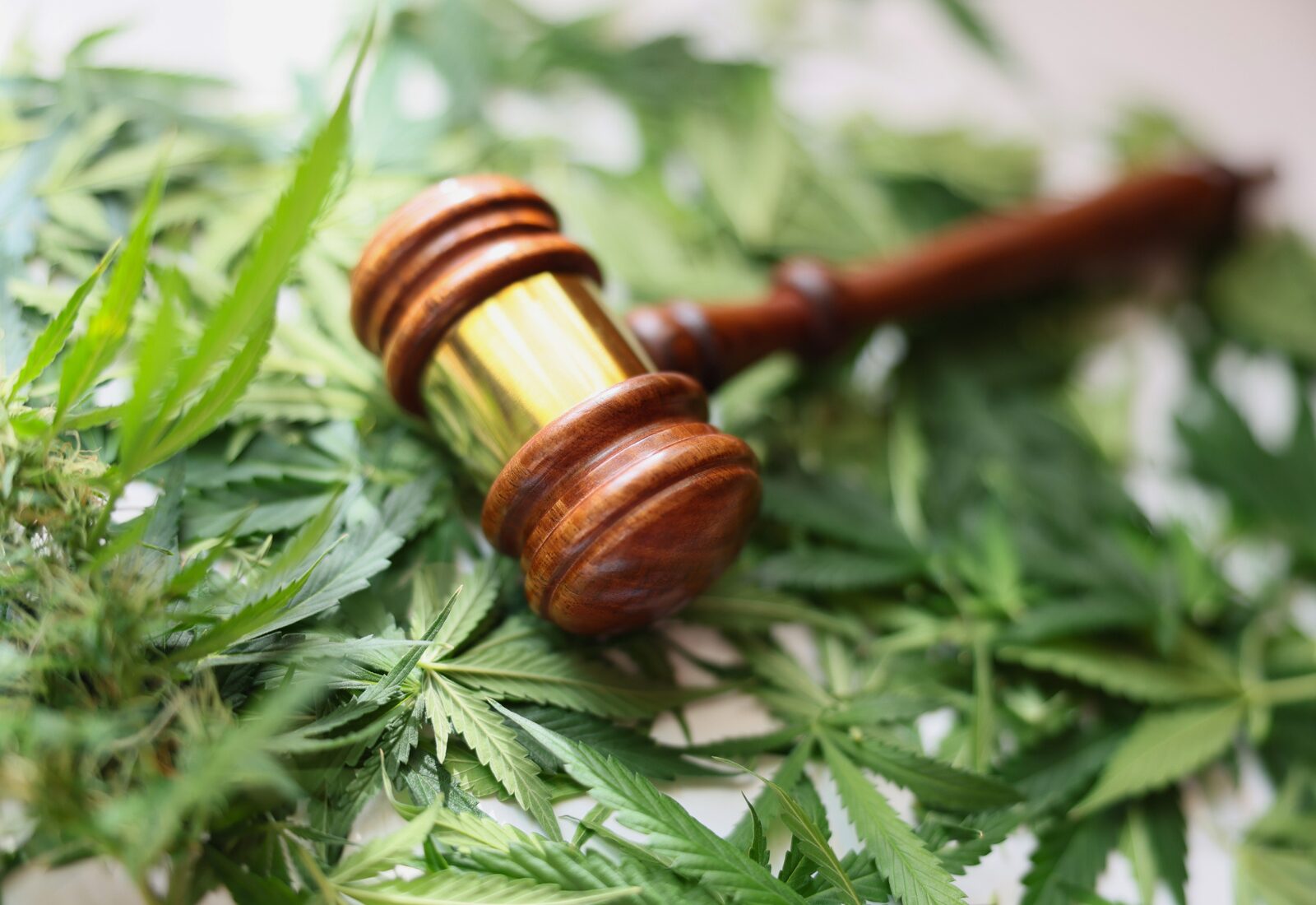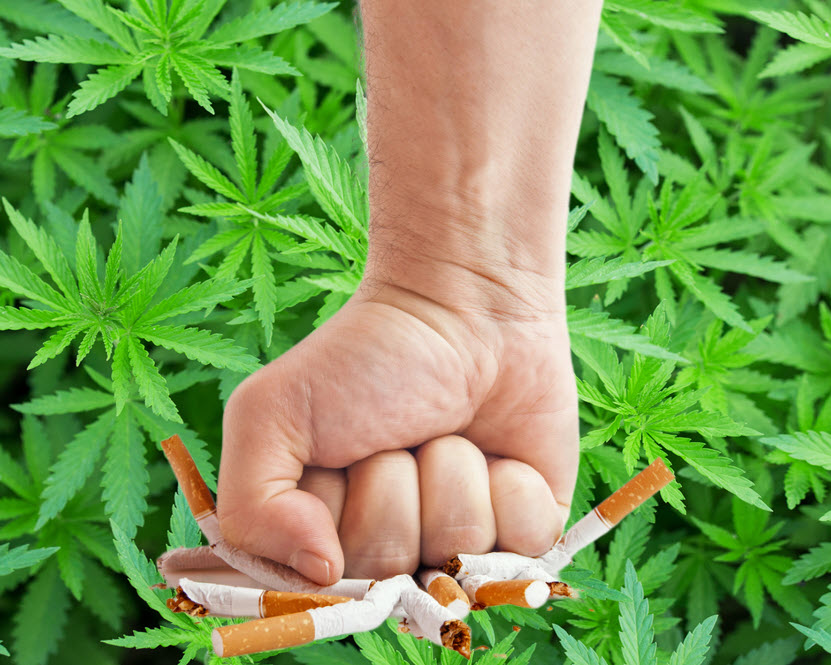
Are Americans Shifting To Weed And Saying Goodbye To Cigarettes?
We live in a time when people are more health-conscious than ever.
For the first time in history, we’re seeing a downward trend in the consumption of cigarettes, especially among young adults and adolescents. Just a few decades ago, cigarettes were considered ‘cool’. The link between cancer and cigarettes were established by the 1950’s, though accepting that cigarette smoking was “bad” for you didn’t take root socially until around the late 1990’s.
Now, we know that cigarette smoking is a dangerous, often fatal habit that leads to cancer, respiratory illnesses, and heart disease. According to the World Health Organization (WHO), over 8 million people die prematurely from tobacco use yearly.
In the results of a Gallup poll from early 2024, they found that more Americans are more likely to smoke weed than cigarettes, while young people are more than 5 times more likely to choose weed over tobacco. The poll found that 17% of Americans smoke weed, while 12% admitted to smoking cigarettes in the previous week. The more dramatic difference was observed among the 18-34 age range, where 26% admitted to consuming weed while only 5% of them still smoke cigarettes.
For the same poll, they also found that the older adults aged 55 and up were more likely to still smoke cigarettes compared to marijuana. “Americans’ reported marijuana smoking has more than doubled since 2013, when Gallup first added the question in its annual Consumption Habits survey,” explained Gallup. “That year, seven percent said they did,” they reported.
Improved Public Perceptions Leads To Healthier Choices
One can’t deny that there has been a massive shift in the increasing awareness of marijuana’s health benefits, as well as the dangers of cigarette smoking. This leads to changing public perceptions, better and more scientific research as well as clinical studies, and an improvement in the law.
The law, specifically, has been instrumental in mitigating the spread of cigarette use. For example, many governments worldwide have established strict no-smoking policies and placed a massive tax on cigarettes. Tobacco manufacturers are no longer allowed to freely advertise their product. All these have led to a downward trend in cigarette smoking habits and purchasing.
The proliferation of legal cannabis throughout North America, not just for medical use but also for recreational use has also contributed to a widespread cultural acceptance of cannabis, which has also improved the public perception of the drug. As we speak, it’s already become a part of society not just in North America but also in countries such as Thailand, several European nations, Uruguay, and Mexico to name a few.
In addition, people are also becoming more educated about the use of alcohol. While it may still be the most widely used intoxicant, its days me be numbered: there is a small yet growing number of people who are choosing to replace alcohol with weed, because of the sheer number of studies proving the dangerous link between fatal illnesses and alcohol. Not to mention that alcohol is linked to drunk driving and road fatalities, multiple different types of cancers, horrible hangovers, and so much more.
Even Gallup polls from as far back as 2022 revealed that people in the United States have already begun to smoke more weed than cigarettes. Gallup conducted the survey from July 5 through 26 of 2022. The results reveal that 11% of the population smoke cigarettes, while back in the mid-1950’s, 45% of Americans smoked them. Meanwhile, 16% of Americans reported that they smoke weed, and 48% tried it in the past. Back in 1969, just 4% of Americans smoked weed!
It’s clear that societal and cultural perceptions around both have changed dramatically. “Smoking cigarettes is on the decline and is most likely to become even more of a rarity in the years ahead,” explains Gallup Senior Scientist Dr. Frank Newport. “This reflects both public awareness of its negative effects and continuing government efforts at all levels to curtail its use,” he said.
Unfortunately, the Gallup poll also found that alcohol remains a popular substance for Americans. Despite the increasing studies being published right now that alcohol is a proven carcinogen, one can’t blame the population: it’s legal, easily accessible, and affordable for many.
Overall, it seems that the demand for wellness is slowly taking over. Wellness is no longer just a buzzword or a trend; it’s a real pursuit that more, especially young people, are seeking. And cannabis fits very well into that picture: whether CBD or THC, the components of marijuana have proven beneficial for the mental and physical health of people, across a wide age group. From pediatric CBD applications to therapeutic uses for the elderly, cannabis can be beneficial for many people.
It’s so easy to see why thousands of young adults commonly include cannabis as part of their everyday wellness regimen – the same generation that have shunned cigarette smoking for good.
Conclusion
If you really must have a smoking habit, choose weed over cigarettes. Even then, any type of weed is much healthier than tobacco. Marijuana is so much healthier for your mind and body, and it can function as a medicine and supplement as well.
For individuals who are struggling to quit smoking cigarettes, you might even want to consider using cannabis as a cessation aid. Many have found success using cannabis to quit cigarettes, with longer-lasting success rates.
CAN CANNABIS HELP YOU QUIT CIGARETTES? READ BELOW…

CAN WEED HELP YOU QUIT CIGARETTES? WE ASKED THE PROS!


 Cannabis News2 years ago
Cannabis News2 years ago
 One-Hit Wonders2 years ago
One-Hit Wonders2 years ago
 Cannabis 1012 years ago
Cannabis 1012 years ago
 drug testing1 year ago
drug testing1 year ago
 Education2 years ago
Education2 years ago
 Cannabis2 years ago
Cannabis2 years ago
 Marijuana Business Daily2 years ago
Marijuana Business Daily2 years ago
 California2 years ago
California2 years ago




















